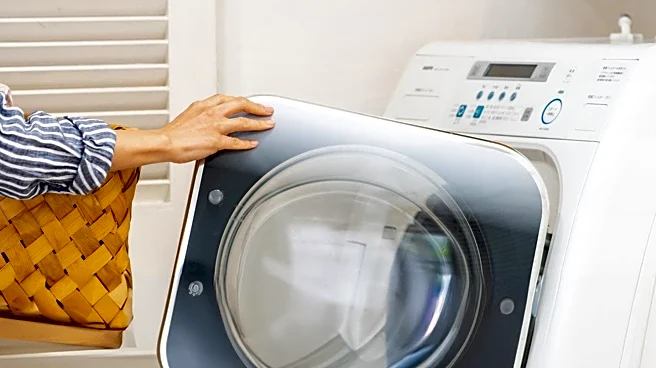What's Happening?
Ford has announced a partnership with Amazon to enhance its certified used car sales through Amazon Autos. This collaboration allows customers to shop for, finance, and purchase certified pre-owned Ford vehicles online. The process integrates local dealerships,
enabling customers to browse inventory, complete paperwork, and schedule vehicle pick-up through Amazon's platform. Ford ensures a money-back guarantee for vehicles returned within 14 days or 1,000 miles. Initially, this service will be available in select markets, including Los Angeles, Seattle, and Dallas.
Why It's Important?
This partnership marks a significant shift in the automotive sales landscape, leveraging Amazon's vast e-commerce capabilities to streamline the purchasing process for consumers. By integrating certified pre-owned vehicles into Amazon Autos, Ford aims to tap into a broader market and enhance customer convenience. This move could potentially increase sales and customer satisfaction, while also maintaining the crucial role of dealerships in the sales process. The initiative reflects a growing trend of digital transformation in the automotive industry, which could influence other manufacturers to adopt similar strategies.
What's Next?
Ford's collaboration with Amazon is expected to expand to more markets, potentially increasing the availability of certified pre-owned vehicles across the U.S. As the service gains traction, other automotive manufacturers may consider similar partnerships to enhance their sales channels. The success of this initiative could lead to further innovations in online car sales, including expanded financing options and enhanced customer service features. Stakeholders, including dealerships and consumers, will likely monitor the effectiveness of this model in improving sales and customer experience.
Beyond the Headlines
The partnership between Ford and Amazon could have broader implications for the automotive industry, particularly in terms of digital sales strategies. It may prompt discussions on the future role of traditional dealerships and the balance between online and in-person sales experiences. Additionally, this collaboration could influence consumer expectations regarding convenience and transparency in vehicle purchasing, potentially driving further innovation in the sector.

















